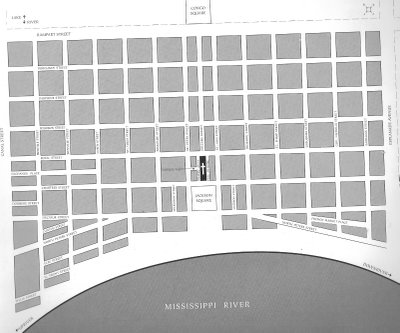
Ash Wednesday
Planned communities have always fascinated me, mostly because they rarely work over the long haul. On the other hand, town and city planning can leave a lasting imprint -- look at the French Quarter of New Orleans, for instance, or Central Park and the street grid of Manhattan.
When religion is mixed in with planning, things tend to take a walk on the wild side, especially if the surrounding populace or governmental agencies react with hostility. North America, like everywhere else, has a long history of civil-religious conflict over specific places and social practices. New trouble is already brewing over Domino's Pizza magnate Thomas S. Monaghan's plans to create the town of Ave Maria, Florida, around the Catholic university of the same name. The town is to function under strict conservative Catholic rules and regulations, and its residents will have to adhere to them if they want to live there. I'm not sure how I feel about this yet. To me, the most important element for such places is the freedom of residents to come and go on a voluntary basis. Other than that, what's the big deal? The Draconian and violent response of government law enforcement agencies (or the military) in the past underscores the need to give this idea a fair hearing and careful consideration.
Why should everyone have to adhere to the same belief systems? Yes, there is supposed to be separation of church and state, and with good reason, but why shouldn't conservative Catholics be able to live with each other?
Furthermore, why shouldn't certain Mormons be allowed to practice polygamy/polygany? These practices are not designed to hurt people, so why so often the threat or use of military or police force to make believers comply with a majority standard? Hopefully, the new HBO series Big Love will delve into this issue, even if in a comic way.
The assault on the Branch Davidians at the Mount Carmel Center outside of Waco, Texas, in 1993 is an appalling example of the use of unnecessary force. The 1985 police firebombing of the "Move" house in West Philadelphia is another. The tradition is a long one: think of the Ghost Dance and Wounded Knee in 1890 and keep going back to the beginning.
In a pluralistic and civil society, we must be able to tolerate religious and secular differences. Violent force should almost never be used in the case of different lifestyles. Obviously, when members are perpetrating or threatening immediate violence against others, it can sometimes be justified, but as long as people can freely come and go without harm, we should live and let live.
As a heterodox Catholic with lefty sympathies and strong hopes for improved human and civil rights worldwide, may I bid you all a thoughtful and humble year at the beginning of this Lenten season. God go with you.










3 comments:
You're opinions are extremely thoughtful. Rock on!
planned communities are always interesting and can be compelling ideas- the question becomes what happens when people put up gates and refuse to let anyone seen as "other" through the doors? unless perhaps as low paid workers or slaves or servants of some sort????
Excellent points. Reminds me to plug T.C. Boyle's Thomas Hardyesque "The Tortilla Curtain" (1996), a novel that plunges right into your hornet's nest of a question. I don't know the answer.
Post a Comment